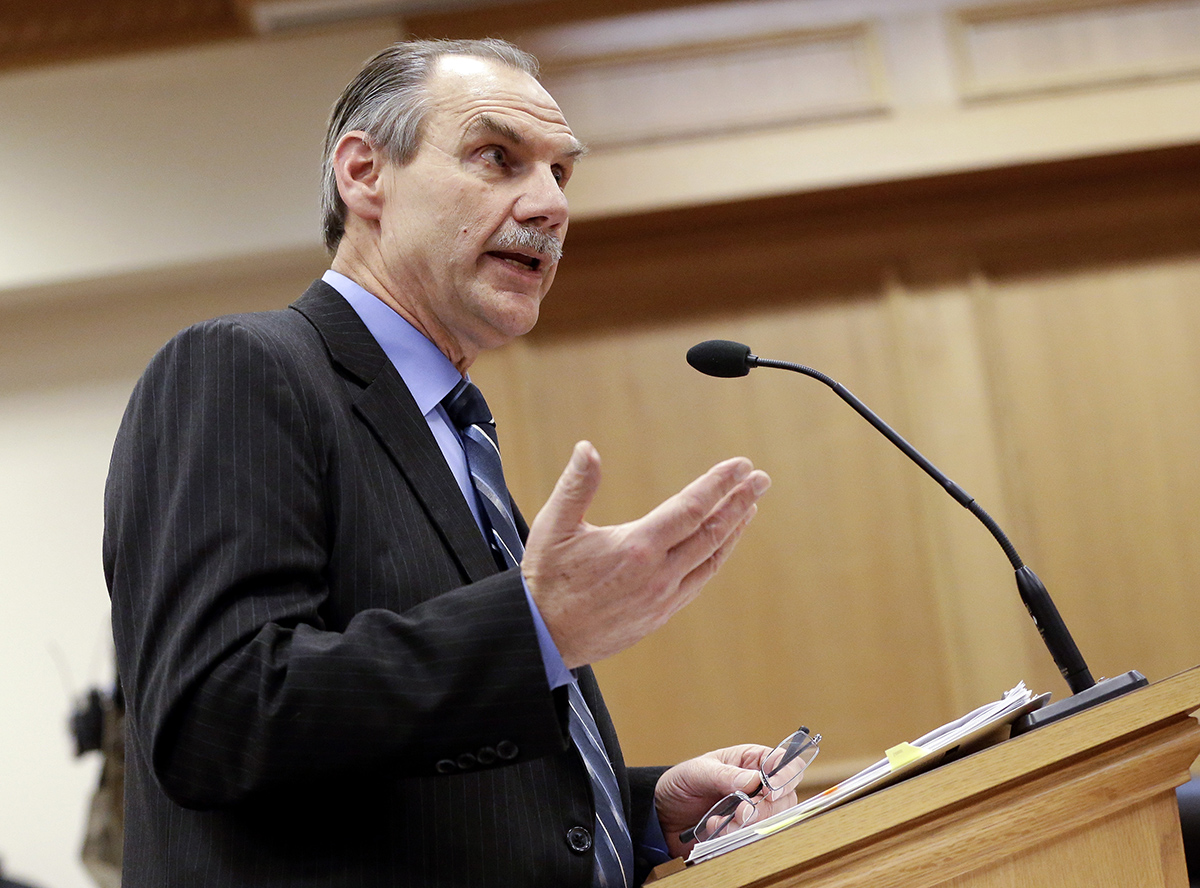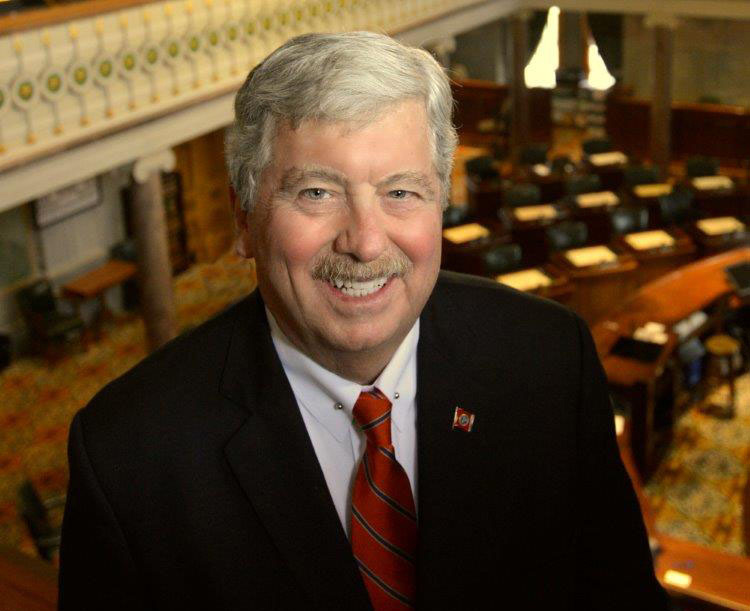NASHVILLE - Tennessee's GOP-led House Monday night voted 69-24 to send a controversial "trigger" abortion bill to Republican Gov. Bill Lee for his consideration.
The measure seeks to restore all or parts of the state's pre-Roe v. Wade abortion laws should the U.S. Supreme Court revisit the landmark 1973 decision and overturn or make revisions to the law that made abortion legal across the country.
Senators earlier passed Senate Bill 1257 on a 26-5 vote, but not before first engaging in heated debate as Sen. Mark Pody, R-Lebanon, attempted to bring his "fetal heartbeat" anti-abortion bill directly to the chamber floor.
The fetal heartbeat bill, passed by a number of Republican legislatures, including Georgia's, is a direct challenge to put the issue back into the federal court system with the goal of getting the Supreme Court to revisit the decision.
Pody's bill would have banned most abortions once a fetal heartbeat is detected by a doctor, usually around six weeks, a time when many women don't know they're pregnant. But anti-abortion critics of the bill, including Tennessee Right to Life, fear the approach could draw an adverse ruling from the Supreme Court.
Pody's bill was sent to summer study by Senate Republican leaders, including Senate Judiciary Committee Chairman Mike Bell, R-Riceville, a longtime abortion opponent, because of those concerns. Bell recently successfully moved the bill to summer study because of that.
On Monday night, Pody challenged that and sought to bring the measure directly to the Senate floor, which normally requires a two-thirds vote to suspend the rules. Republican Lt. Gov. Randy McNally, the Senate speaker, Bell and others were opposed.
A passionate Pody cited a portion of New Testament gospels in which there was a fierce debate over rules "that a man had to ask: is it lawful on the Sabbath to do good or evil to save life or destroy it? That was directly out of the gospels."
"These rules that we all voted on are here to serve us and they're not our masters," Pody added. "I pray and believe I am following God's will."
Bell said he had been deluged with emails from people criticizing his and GOP leadership's decision to send Pody's bill to summer committee. While usually viewed as a way to kill legislation, Bell said his intent was to actually study the bill by setting a specific date for a hearing and come up with language to "make it stronger" in terms of mounting a successful legal challenge to prior court decisions.
The debate has split segments of Tennessee's pro-life community.
Bell recalled getting involved decades ago in protesting abortion, starting at the 1988 Democratic National Convention in Atlanta where, he said, "the modern pro-life movement was birthed."
Bell recalled joining Operation Rescue, which began in the 1980s with sit-in demonstrations to block doors of abortion clinics. And he noted how he later went with his wife and six-month-old child to clinics "praying, singing and being part of what I saw as an awakening on this issue."
In Chattanooga in the late 1980s and early 1990s, Bell said, he joined in protests at the city's lone abortion clinic, relating how he was arrested when abortion opponents linked arms.
"I once went to a hotel where we knew the abortion clinic doctor was going to stay" out in the Brainerd section of Chattanooga," Bell added, noting he laid down "behind [the doctor's vehicle's] back wheel where he couldn't leave and perform abortions."
Describing himself as "just a foot soldier," Bell said "many deserved credit for making Chattanooga the largest city in the United States without an abortion clinic," noting how he and others joined together and "helped raise money to buy a clinic and it's a monument now to the unborn."
Pody's effort was defeated on a voice vote.
Republicans then went on to debate the "trigger" bill, drawing criticism from minority Democrats in the chamber.
Senators approved the trigger bill on a 26-5 vote, supported by McNally, and GOP leadership.
The House, which already had passed the heartbeat bill, later Monday night debated the trigger bill, with Democratic critics questioning whether resurrecting a law passed prior to 1972 was a wise thing to do in 2019.
Minority Leader Mike Stewart, D-Nashville, noted it would bar all abortions except to save the life of a mother. Any physician involved in the procedure could be charged with a Class E felony, Stewart added.
"I don't imagine there's a state in the country that makes it a class E felony to perform this procedure," Stewart said. "It seems like that's an extraordinary penalty to impose on doctors. It sounds outdated ... [it] doesn't sound like where Tennessee should be going."
Contact Andy Sher at asher@timesfreepress.com or 615-255-0550. Follow on Twitter @AndySher1.


